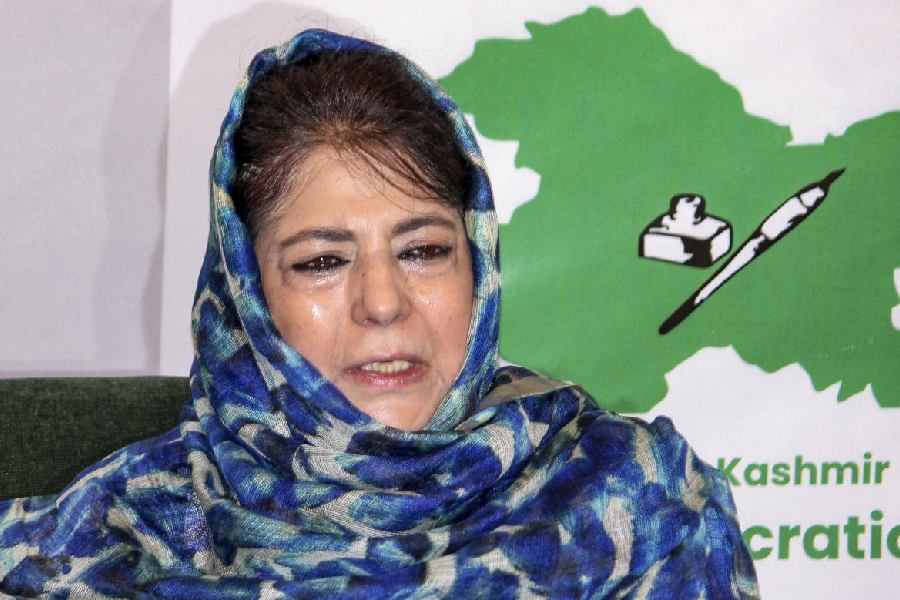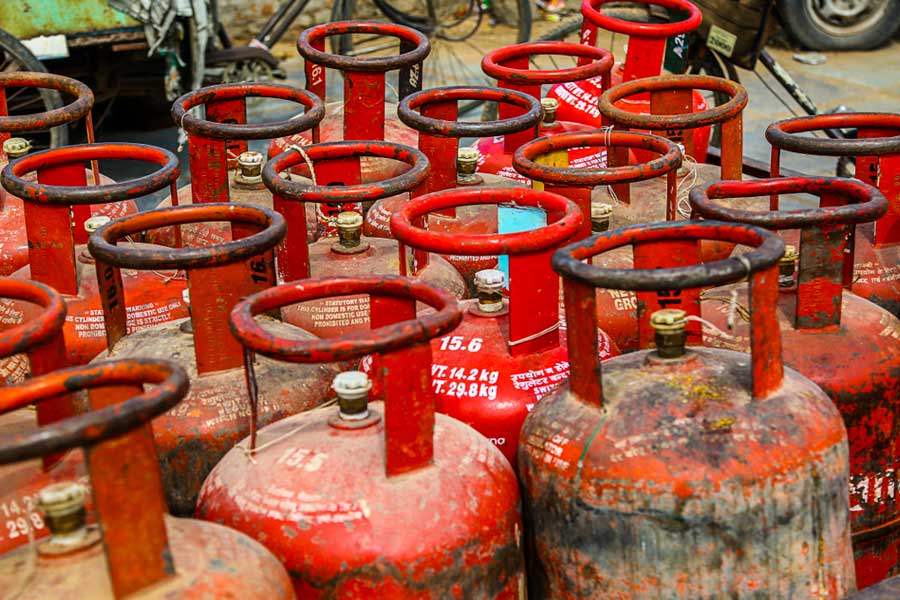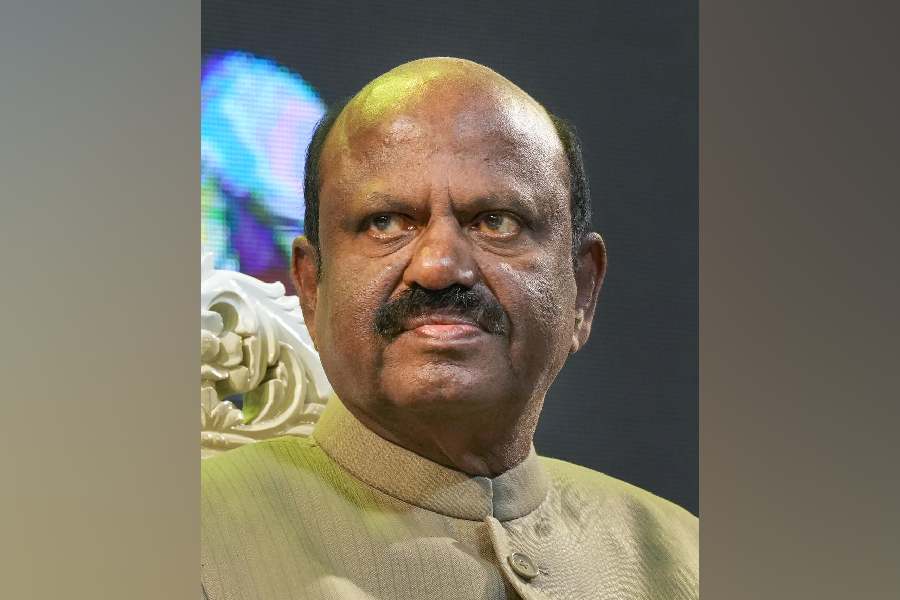Peoples Democratic Party chief Mehbooba Mufti has questioned the rationale behind engaging 4,000 ex-servicemen to secure vital installations amid rising unemployment in Jammu and Kashmir, escalating the war of words with chief minister Omar Abdullah.
Omar and Mehbooba had traded barbs on Saturday over the chief minister’s call to revive the contentious Tulbul Navigation Project, which involves regulating the Jhelum’s water before it flows into Pakistan to enhance navigation and hydropower generation in Kashmir.
Mehbooba has picked up a fresh fight with Omar over the decision to deploy ex-servicemen on guard duty, striking a chord with an army of unemployed youth struggling for jobs.
It is not clear whether the decision to engage veterans has been taken by lieutenant governor Manoj Sinha’s office or the chief minister’s office, which has little say in security-related issues.
In a letter to Omar, Mehbooba said she wanted “to express my deep misgivings and concern regarding your government’s recent decision on deploying 4,000 ex-servicemen to guard critical infrastructure across Jammu and Kashmir”.
“While we value the service and discipline of our veterans, this move raises serious questions, especially because it comes at a time when lakhs of educated yet unemployed youth are struggling to find opportunities in J-K,” the letter reads.
“Static guard duties do not require military expertise and could very well be performed by trained local youth, for whom such employment could be a vital lifeline,” the PDP chief added.
She said many of these ex-servicemen received pensions, and prioritising them over jobless young people risked the deepening of a sense of exclusion among the youth. “The government will also miss a crucial opportunity to build trust and engagement”, she said.
“Furthermore, this policy could be perceived as a short-term security solution that fails to address long-term social and economic stability. Engaging local youth in such roles will not only generate employment but also foster a sense of responsibility, inclusion and participation in maintaining public safety, an essential pillar of peace-building in the region,” she said.











